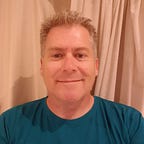Should a gay writer be a gay writer?
I don’t remember deciding to become a writer. You decide to become a dentist or a postman. For me, writing is like being gay. You finally admit that this is who you are, you come out and hope that no one runs away. (Mark Haddon, author of The Curious Incident of the Dog in the Night-Time)
I recently saw a debate on Twitter about the responsibility LGBTQI+ writers have to use their own experiences in the work they produce. The counter argument said that LGBTQI+ writers should be able to write whatever they want, not necessarily LGBTQI+ works alone.
It’s an interesting concept. Often, as writers, we are told to write what we know. We are told that using our own experiences will make for richer and more authentic reader engagement.
Does this mean LGBTQI+ writers should be limited to writing LGBTQI+ stories only?
When I was starting out as a writer a few years ago, I struggled with this question. I talked about my identity as a writer with my therapist, as it was something I was unsure how to navigate. What did it mean to call myself a writer? And should I be calling myself a ‘gay writer’?
At that time, I didn’t want to write anything autobiographical, even if it was highly fictionalized. I didn’t want to write a ‘gay’ story either and writing anything autobiographical equated with writing a gay story in my mind.
I discussed with my therapist my reluctance to write ‘gay’, about not wanting to be pigeon-holed as a ‘gay writer’, and not wanting to be limited to LGBTQI+ readers. That should give you some idea of the kinds of prejudices I held about myself! I thought that if I wrote a ‘gay’ novel, I would be forever trapped in ‘gay literature hell’, unable to write anything different for fear of being rejected by the literati.
It was a good thing I discussed these thoughts with my therapist, as they led straight to the internalized homophobia I’ve carried all my life. But this article isn’t about my therapy, it’s about being a gay writer.
So, how did I get over my prejudices? How did I reconcile the idea of being a ‘gay’ writer, with actually being a ‘gay writer’?
Easy. I became a gay writer.
I say easy, but it actually took a lot of work.
The first novel I started writing was a story based on letters my great-grandmother received from a Red Cross volunteer in London, as she nursed my great-uncle until his untimely death. I loved the factual basis for this story. I loved that I had the actual letters from the Red Cross volunteer to inform her character and the narrative.
I just couldn’t write it.
For six months I tried to force this story out. Despite its place in my family history, I didn’t feel a personal connection to the story. I realized I was writing this story because I thought it would sell. I thought it would resonate with a wide audience. I thought it had the potential to be popular.
None of those reasons were enough. They weren’t enough for me to feel the story. They weren’t enough for me to write the story. So, I put it away in a drawer and thought about what to write instead.
This led to re-examining my thoughts about what it meant to be a ‘gay’ writer.
And then a story began to form in my mind. The story of a thirty-something gay man, who’s boyfriend leaves him, and all the walls he had built around him begin to crack.
Basically, I had the outline of a gay novel. Oh, no! Exactly what I wanted to avoid! Did this mean my writing career was over before it began?
The opposite, in fact. As you can guess, I took these feelings to therapy. I discussed the need to write something that I felt connected to, that was personal, but not autobiographical. The idea of being pigeon-holed as a ‘gay writer’ no longer worried me. In line with issues my therapist and I had talked about for years, I realized the only person judging me and holding me back, was me.
I could write a gay novel about a gay man and gay themes. I could write a straight novel about a Red Cross volunteer and a soldier during WW1. I could write a collection of stories about a lesbian private investigator and her ghosts.
As a gay writer, I do not owe the world only gay stories. I am a writer and I am gay and I am a gay writer. These ideas are intertwined in my identity, yet they are not mutually dependent.
My advice to you — be the writer you want to be. Be the writer that produces your best work. Be yourself, and your readers will feel it in your writing.
I am a gay writer, but I am also a Scottish writer and some days a lazy writer, or a funny writer. Being gay is just part of who I am. (Damian Barr, author of You Will Be Safe Here)
